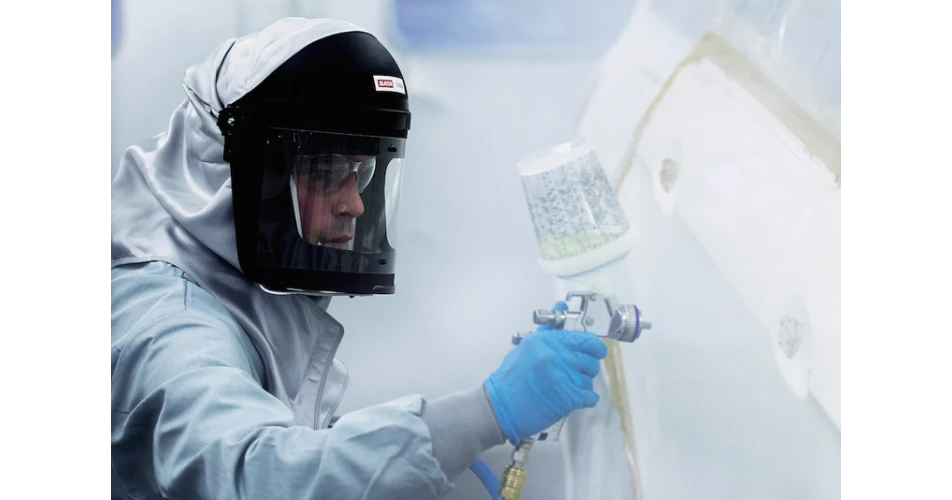Refinish paints are today much safer than they have ever been, but do still pose considerable dangers to users. Harald Klöckner, manager of Standox Training Management for Europe, Middle East and Africa has produced some useful tips for safety and personal protection in the modern paint shop.
Tip 1: Be aware of the chemicals. Even experienced professional refinishers frequently underestimate the health risks associated with the use of paint products. Refinishers should be aware that they are handling chemical substances that should not come into contact with the body.
Tip 2: Always wear the recommended, complete equipment. Personal protection equipment, overalls, gloves, safety glasses, safety boots and respiratory protection, offers protection against particles, organic gases and fumes during the preparation and finishing phases. Ear protection should also be worn when using pneumatically or electrically operated machines. Always follow the user information and safety advice for every product. Wear all the required protective gear at all times, even if under time pressure.
Tip 3: Protection starts outside the spraybooth. Many refinishers associate health hazards with work in the spray booth, but refinishers also need to protect themselves even during the preparation phase. It is especially important to wear appropriate respiratory protection when sanding to stop inhaling microscopic dust particles that are created during the process. Respiratory protection is also recommended when mixing paint.
Tip 4: Protective face masks offer the best protection. Respiratory protection is of particular importance for refinishers, so for work in the spray booth Standox recommends face masks that cover the entire face and which are either equipped with an activated carbon filter unit or are force-ventilated. That means the face masks the refinishers wear are supplied with oxygen via a tube. This type of face mask has the advantage of being light and offering wearers no resistance when breathing so they can be worn without any time limit. Face masks not only protect the airways, but also eyes, facial skin and hair. Half masks are practical, but offer less protection.
Tip 5: Make sure equipment is in perfect condition. Refinishers should always ensure protective equipment is in perfect condition. As soon as any damage, such as holes or defective fastenings, are noticed, repair or fully replace damaged or worn parts. Activated carbon filters must be changed regularly. It is also important to be careful when storing personal protective equipment. Masks in particular should be stored somewhere clean that is free of dust and protected from solvent fumes. Do not leave them lying around exposed near waste water basins or in the mixing room, otherwise the activated carbon filters will become saturated with pollutants contained in the ambient air and will only offer limited protection.
Tip 6: Set an example. Set an example for safety at work and raise awareness among colleagues. Nothing leads to dangerous negligence more quickly than a colleague who does not adhere to the rules. That is why it should be common practice in every bodyshop to discuss safety at work at regular intervals and to systematically prevent violations of the safety rules.
